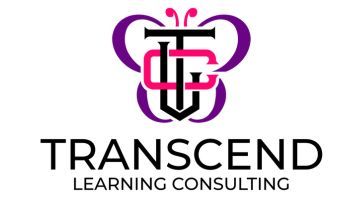The Currency of Trust in Coaching Relationships
Apr 11, 2025
Total reading time: 3 mins
The High Value of Trust in Impactful Coaching
Coaching is a highly relational process that requires a foundation of trust. Without it, impactful coaching simply cannot occur. When trust is built early on, it acts as a deposit in a relational "bank account" that can be drawn upon during critical moments that will arise in the coaching journey.
At the start of a coaching relationship, initial interactions such as showing empathy, listening attentively, and consistently following through helps to create a foundation of safety and respect—signaling to the teacher that the coach is there to support them, not to judge or criticize. This is pivotal, especially if the teacher had a negative coaching experience in the past. When trust is strong, coaching moves beyond being a transactional exchange into a transformational experience that can foster personal and professional growth.
Four Ways to Build Trust in Coaching
Trust isn’t built overnight and it isn’t earned through titles and authority. Trust is cultivated through intentional actions, rooted in respect, transparency, and genuine care for the people you lead and support. Here are four high-impact ways to build trust:
1. Be transparent: foster clarity and open communication
Uncertainty creates mistrust. When people feel left in the dark whether about expectations, decisions, or feedback they are more likely to assume the worst. Transparency conveys respect. It shows that you trust others with information and believe in their capacity to engage in meaningful problem-solving.
- Clearly communicate the why behind decisions, especially when they impact teachers and students.
- Set clear expectations and follow through on commitments.
- Acknowledge challenges openly instead of pretending they don’t exist.
2. Be authentic: lead with integrity and vulnerability
People trust leaders who are real, not those who try to project perfection. Authenticity is about aligning your words and actions and showing up as your true self—flaws and all. When people see you as a real person, they feel safer to be open and engage in honest conversations about their challenges.
- Admit when you don’t have all the answers.
- Own your mistakes and demonstrate a commitment to learning.
- Let people see your passion, values, and genuine care for their growth.
3. Maintain confidentiality: honor trust by protecting it
Confidentiality is one of the most critical yet overlooked elements of trust-building. Nothing erodes trust faster than the fear that private conversations will be shared without permission. When people know they can confide in you without fear of exposure or judgment, they feel safer to seek guidance, reflect honestly, and take steps toward improvement.
- Keep coaching conversations confidential and honor collaborative agreements for sharing information.
- Avoid gossip or discussing individuals in ways that could damage trust.
- Clarify what information must remain confidential and collaboratively decide what may be shared.
4. Be present: show up and be dependable
Trust is built in small, everyday moments. Being present isn’t just about physical presence. It’s about giving your full attention, following through on commitments, and being someone who can be counted on
- Listen fully by putting away distractions and engaging in active listening during conversations.
- Follow through with commitments and honor your word. If you say you’ll do something, make every effort to do so.
- Be a steady presence by showing up consistently for support and encouragement, no just when there’s a problem.
Trust is a worthy investment that yields long-term dividends. By prioritizing early trust-building, coaches create relationships that are strong, resilient, and capable of driving meaningful change. When teachers feel safe, supported, and valued, they will be more willing to participate in professional learning and coaching that will grow their practice and benefit student learning.
Consider this:
How do your daily interactions reinforce—or weaken—trust in your coaching relationships? What intentional actions can you take to strengthen trust-building moving forward?
Stay connected!
Join our Beyond Coaching newsletter to receive valuable insights, pro tips, and actionable strategies to sharpen your personal leadership skills and coaching practice.
We hate SPAM. We will never sell your information, for any reason.


